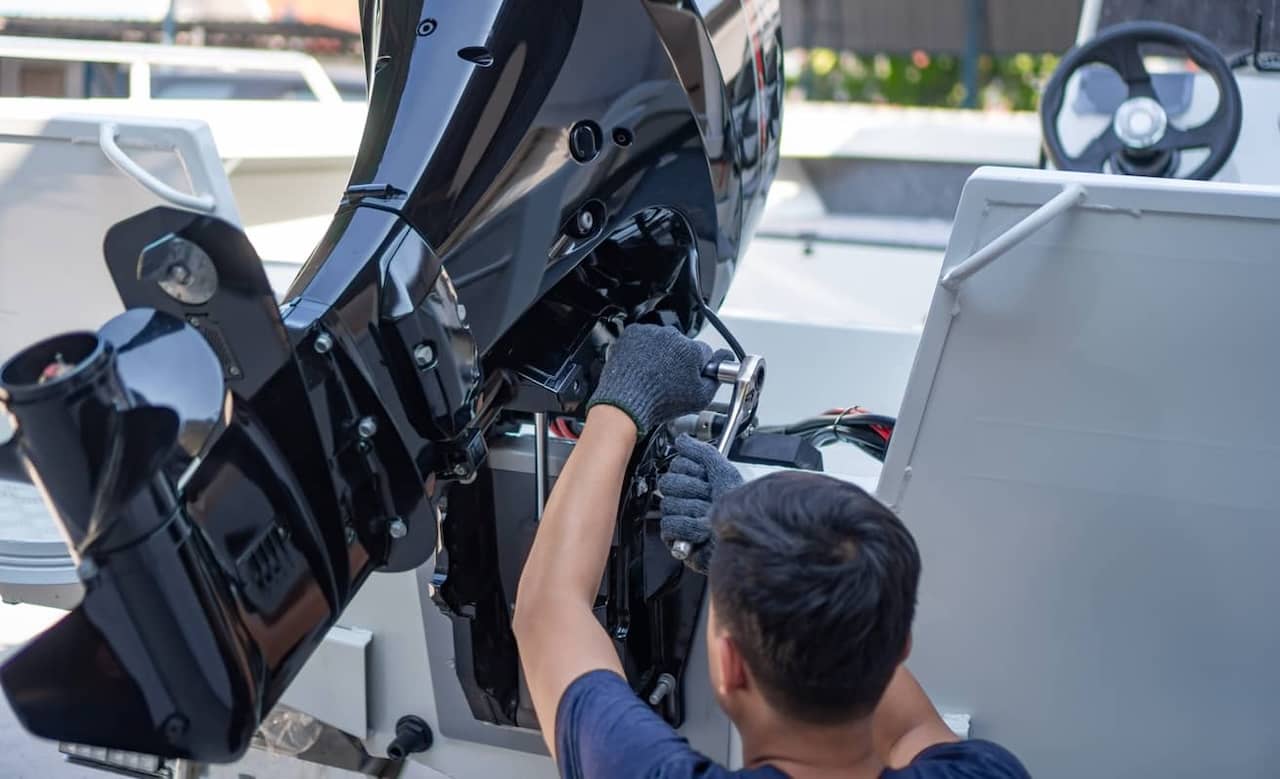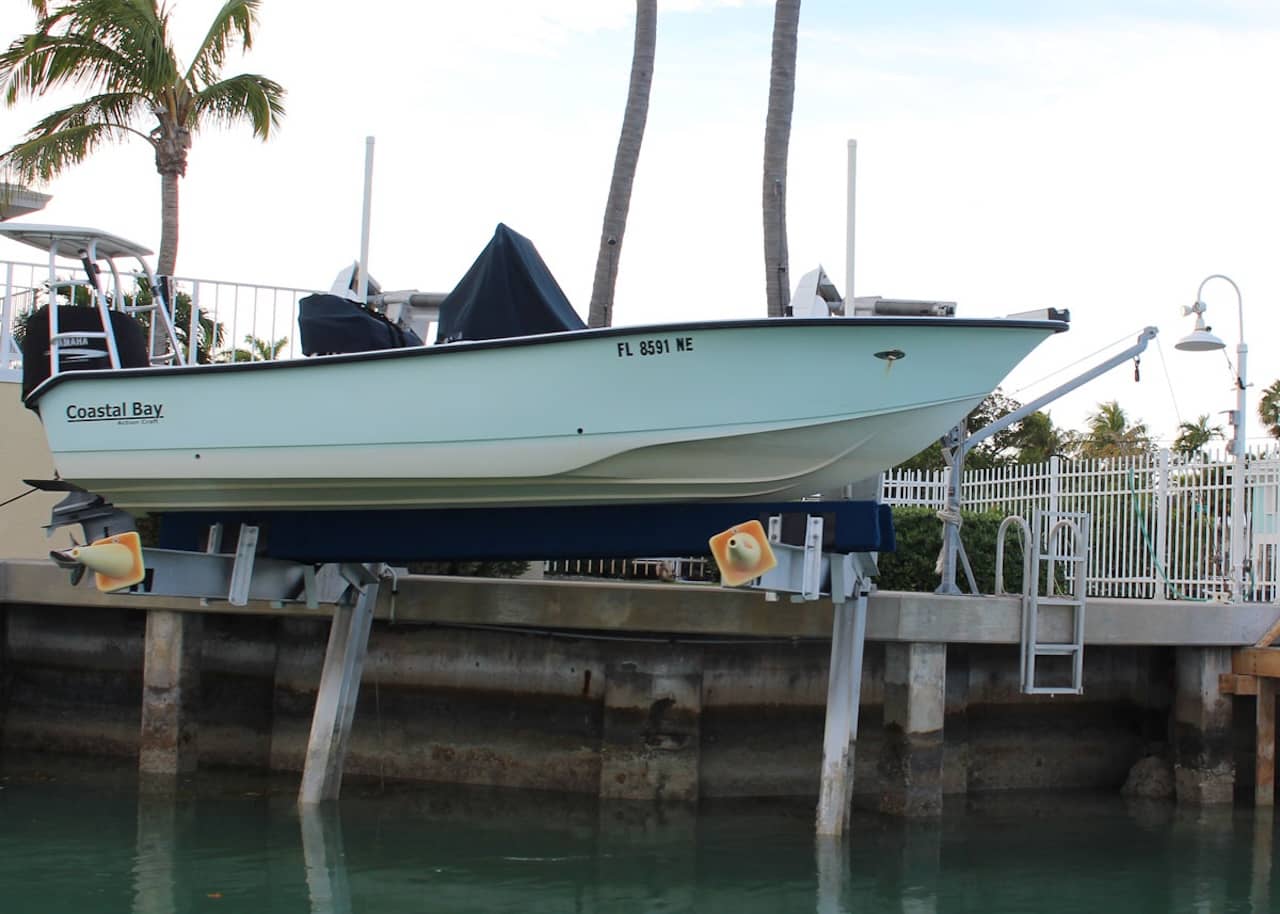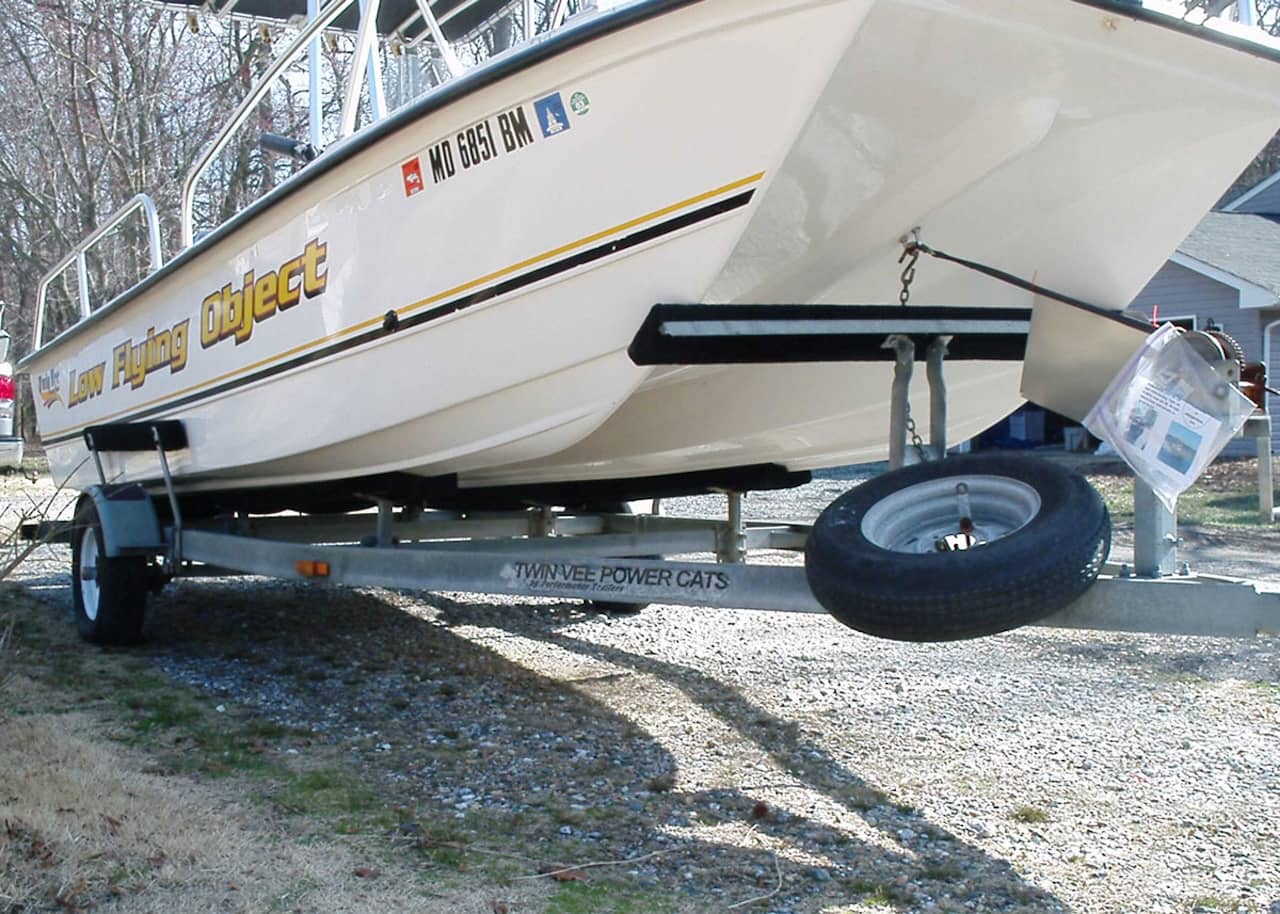Last year, we discussed How to Price Your Boat for Sale in one of our articles. Here’s a related question for those considering selling their boat: how do you increase the value of your boat? In most cases simply adding or replacing equipment is a losing proposition, as it generally increases the value of a boat by a fraction of the gear’s cost. However, that doesn’t mean you can’t maintain the value of your boat even as comparable boats lose value. And if you buy a used boat in fair or poor condition and are willing to put in the labor, you may even be able to increase its value and turn a profit on that previously shabby affair. Let’s take a look at nine ways you can bolster your boat’s value, whether it’s a sailboat, motorboat, fishing boat, or speedboat.
1. Perform Regular Maintenance
Nothing helps a boat maintain its value as well as regular maintenance. You’re supposed to change that engine oil and lubricate those moving parts for a reason—they’ll last longer and work better if you take care of them. Remember, boats are subject to an extraordinary level of vibration. They get used hard and put away wet. And many are subjected to saltwater wear and tear. If you fail to keep up with regular maintenance chores, you should expect any boat to deteriorate at a blinding pace.
Just what that maintenance entails depends on what type of boat you have. As one might expect, wooden boat care and maintenance is quite different from the treatment of fiberglass or aluminum boats. Outboards have different needs from inboards and stern drives. Powerboats and sailboats have maintenance regimes that are worlds apart. So every individual boat owner has to make up their own maintenance list that fits their requirements. Whatever type of boat you own, be sure to cover:
- Propulsion systems
- Hull and topsides exterior care (gel coat, paint, or aluminum)
- Vinyl, canvas, and soft goods upkeep
- Battery and electrical systems
- Plumbing systems
- Any moving part
As we mentioned, keeping an engine (or for that matter a set of sails) properly maintained means it will look better and last longer, maintaining the value of your boat. Hull, topsides, vinyls, canvas, and soft goods care is critical to maintaining the boat’s looks, which has a dramatic impact on a boat’s value (more about that later). Keeping the batteries and electrical system in good shape extends their service life and boosts reliability. The same is true for plumbing systems. And when it comes to moving parts, well, if they stop moving the value of your boat just dropped. All of these pieces, parts, and then some require regular maintenance if you want to maintain the value of your boat, so don’t slack off and start from day one. When you go to sell the boat, it’s sure to sell for more than it would have otherwise.

A vessel that’s not well maintained will deteriorate and lose value quickly.
2. Keep a Maintenance Log and Receipts
Doing all of that maintenance is one thing, but proving you’ve done it is another. Much of what we’re talking about here will be visible to the eye, but much of it won’t be. If you can produce maintenance records as evidence that the engine’s oil was changed on time every time and the water pump impeller was replaced as per the manufacturer’s recommendations, anyone interested in buying the boat is presented with hard evidence that it was properly maintained.
There’s a secondary way having records and receipts can increase the value of a boat being sold: Any prospective buyer will immediately know that you take boat care seriously. The mere fact that you kept track of all those tasks, saved the boatyard receipts, and maintained accurate records the entire time you had the boat says a lot about how you look at boat ownership—and anyone who considers buying it will know it’s been treated with care.
3. Keep the Boat Pristine
If you let your boat get dirty, it just becomes harder and harder to get it cleaned up again. Dirt and grime gets ground in, oxidation forms in gel coat, and every nook and cranny of the boat goes from beautiful to blemished. Buying a boat is emotional as much as it is logical (probably much more so), so if you keep that boat as bright, shiny, and beautiful, when people look at it, they’ll want it. And that means the boat will be worth more to them.
Keeping a boat looking pristine is a never-ending process that generally includes plenty of elbow grease. To get the lowdown on some of the basics, be sure to check out 3 Simple Ways to Keep Your Boat Looking Good as New.
4. Store Your Boat Properly
The more a boat is exposed to the weather, the faster it will deteriorate, so how you store it can make a big difference in the boat’s value down the line. Storing boats can be broken down into two major categories: regular storage and winter storage.
When it comes to regular storage, most of us simply can’t do what’s optimal to maintain the boat’s value, because in the best-case scenario you’d keep the boat fully protected by an enclosure or boathouse at all times. With few exceptions, this would be prohibitively expensive or completely impossible. You could opt to keep the boat in a dry stack building, but this comes with its own set of drawbacks, like limited access and seasonal closures. Keeping a boat on a lift or trailer doesn’t keep it as protected but is generally better than keeping it in a wet slip. In all cases where the boat is exposed, however, you can at least partially protect it—and thus help protect its value—by keeping its critical parts covered. Helms, consoles, and seating, in particular, benefit greatly from covers. As a rule of thumb, you should get any and all covers that are available for the boat or, if necessary, have covers custom-made for the critical parts.
People living in many climates will have to deal with winter storage, as well. Again, in a perfect world we’d keep our boats hermetically sealed in a sterile environment. Good luck with that. But we can take pains to make sure the boat is protected during the winter months with shrink wrap or a stem-to-stern cover that keeps off the snow and the sun. If you can park the boat under a roof of some sort, so much the better. And of course, don’t forget that a huge part of proper winter storage is learning how to winterize your boat so it doesn’t suffer from freeze-damage while in its winter slumber.

Boats that are stored with critical parts like the helm and seats covered will maintain their value longer.
5. Refresh the Boat’s Looks
If you’ve bought used and are serious about learning how to increase the value of your boat, the biggest thing you should keep in mind is restoring and refreshing its looks. This can be quite laborious and may range from de-oxidizing gel coat to polishing aluminum and everything in-between. But remember: how much someone is willing to pay for a boat depends on how they react to it emotionally, so desirable looks are absolutely critical to boosting a boat’s value.
When it comes to fiberglass boats specifically, for the majority of the used boats on the water today the single most impactful way you can refresh its looks will be to de-oxidize all of the gel coated surfaces. Fiberglass gel coat begins to suffer from oxidation the moment it’s removed from the mold, and through the years that shiny, slick surface becomes chalky and dull. A healthy application of oxidation remover and lots of elbow grease, followed by a thorough wax job, can vastly improve the gel coat’s looks and will bring most boats back to life.
Of course, there’s more to a boat than the hull alone. Shine those metal fittings, wash the canvas, treat the vinyls to a vinyl cleaner/restorer, and clean the plastic parts with a dedicated plastic cleaner/restorer. The bottom line is that the better a boat looks, the more it’s likely to sell for.

With its gel coat restored to a super-slick shiny finish, this 10-year-old boat sold for significantly more than its book value.
6. Ensure Power Systems Operate Properly
If a boat’s engine(s) don’t run properly, obviously, that boat’s value will suffer greatly. Be careful here, however. On some older used boats with engines in need of replacement, it may cost more to repower the boat than the entire package will be worth once the job is complete. The same may be true of performing major overhauls, although in many cases if you do all the work yourself to save on the labor costs you can come out ahead.
When it comes to more minor repairs, like replacing a squeaky belt or fixing a starter that won’t turn, taking care of the issue will generally increase the value of the boat significantly. Nobody will be willing to pay top dollar for a boat that doesn’t run right, so in this case a relatively small investment can pay off big dividends.

Naturally, if you want to get top dollar for that boat the engine or engines must be running properly.
7. Eliminate Musty Odors
This might sound like strange advice, but if you’ve spent any time on older boats you’re familiar with that musty smell that often fills their cabins. The head on many boats has a unique smell of its own, too, even on center consoles with an enclosed head compartment. And nothing screams “old” like a boat that, well, stinks.
There are several measures you can take to deal with those musty odors, although we should recognize right up front that completely eliminating them is a longshot. Obviously, air fresheners will help. Adding a moisture absorber works well, too, but these need to be changed on a regular basis to make a significant difference. Cleaning up any mold or mildew you can find will also tamp down those smells. And as far as the head goes, keeping it clean, disinfecting the bowl, and keeping that holding tank clean works wonders. Also work on cleaning out all areas that hold moisture, like shower sumps, drains, and bilges. Anywhere water sits you can find microbe growth, which fuels those smells.
Remember, even if you learn all the ins and outs of how to increase the value of your boat and put them to use, boats in general are a declining asset. As a rule of thumb, they’ll end up costing you some cash no matter how careful you are. But if you work at it and employ all these tips, in the long run your bank account will thank you.
This article was published in March 2021 and updated in November 2024 by Lenny Rudow.



